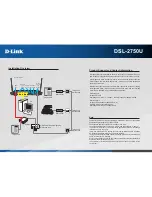
A-23
Cisco Intrusion Detection System Appliance and Module Installation and Configuration Guide Version 4.1
78-15597-02
Appendix A Intrusion Detection System Architecture
System Components
For Catalyst switches it is a blocking interface VLAN number. Do not use these
names for preblock and postblock ACLs.
For Catalyst 6000 VACLs, you can specify a preblock and postblock VACL and
only the interface is specified (direction is not used in VLANs).
For PIX Firewalls, you cannot use preblock or postblock ACLS because the PIX
Firewall uses a different API for blocking. Instead you must create ACLs directly
on the PIX Firewall. See
Blocking with the PIX Firewall, page A-25
, for more
information.
Maintaining State Across Restarts
When the blocked host list or blocked network list changes, the new lists (with
starting timestamps) are written to a local file (nac.shun.txt) that is maintained by
NAC. When NAC starts, this file is used to determine if any block updates should
occur at the controlled network devices. Any unexpired blocks found in the file
are applied to the network devices at startup. When NAC shuts down, no special
actions on the ACLs are taken even if outstanding blocks are in effect. The
nac.shun.txt file is accurate only if the system time is not changed while NAC is
not running.
Caution
Do not make manual changes to the nac.shun.txt file.
The following scenarios demonstrate how NAC maintains state across restarts.
Scenario 1
There are two blocks in effect when NAC stops and one of them expires before
NAC restarts. When NAC restarts, it first reads the nac.shun.txt file. It then reads
the preblock and postblock ACLs or VACLs. The active ACL or VACL is built in
the following order:
1.
The allow sensor_ ip_address command (unless the allow sensor shun
command has been configured)
2.
Preblock ACL
3.
The always block command entries from the configuration
4.
Unexpired blocks from nac.shun.txt
5.
Postblock ACL
Содержание IDS-4230-FE - Intrusion Detection Sys Fast Ethernet Sensor
Страница 4: ......
Страница 450: ...Appendix B Troubleshooting ...
















































